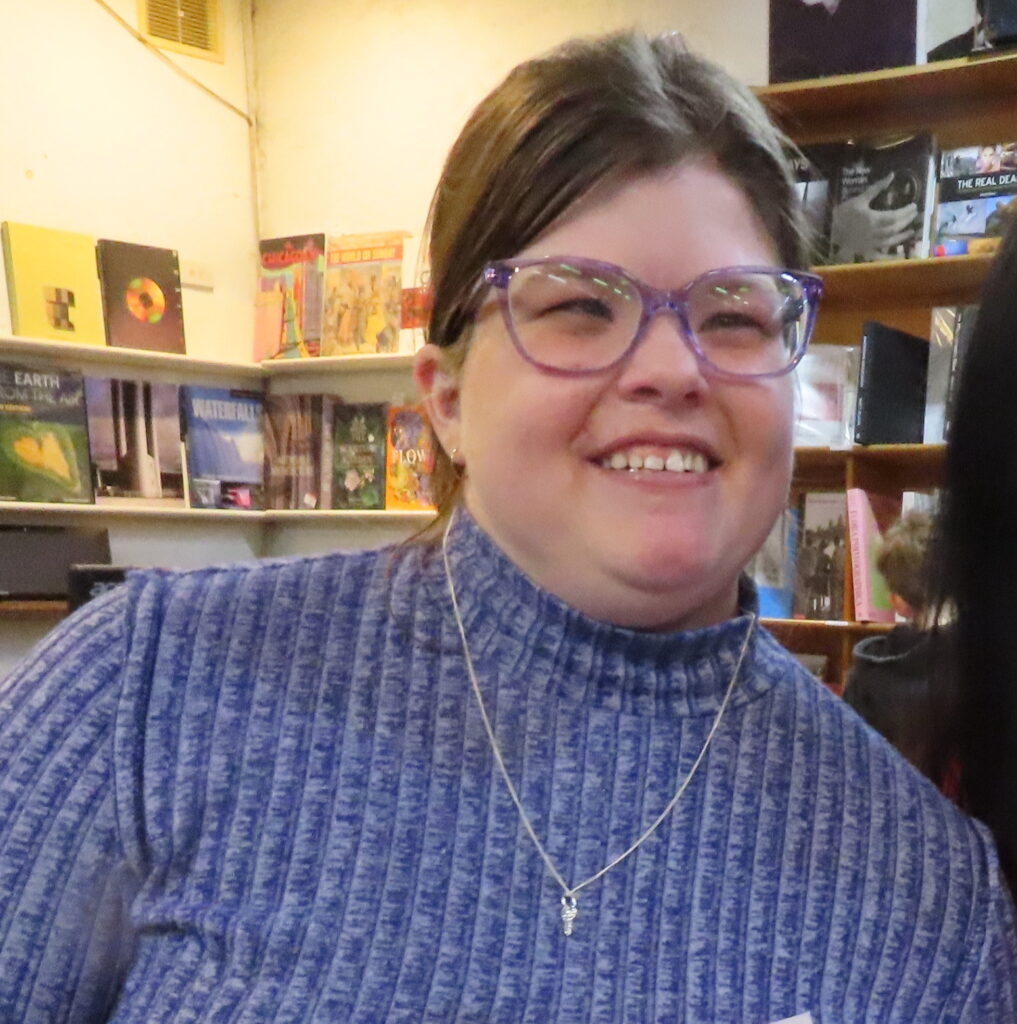By Ashleigh Meikle
Mentions of suicide, mental health, ableism, isolation.
Being disabled can be isolating. I never really noticed this growing up – maybe it was less of a concern because things were under control for so long, or I was always with family who knew what to do, or I had friends who encouraged me and didn’t pressure me into things. They encouraged me to try things but never made me feel like I had to. They helped me through any fears I had. But there was always a feeling of isolation that accompanies disability and in my case, epilepsy.
Because epilepsy is an invisible disability, a lot of people don’t think to make accommodations for it. At times, it feels like it isn’t a consideration for many activities. People don’t think about how lighting affects epilepsy, about the impact of moving images in a dark or semi-dark environment, or about the use of strobe lights in exhibitions, stage shows, movies, or laser tag. Warnings can be in small print, far down the page – when I have seen them. If I tell people I’m concerned about that, it’s brushed off as ‘Oh, you’ll be fine.’
Epilepsy is given less thought in my experience than other accessibility needs – and efforts should be made to include all access needs. Events that don’t consider accessibility needs for people with invisible disability are exclusionary – and puts the onus on people like me to work out if we can access the event as well as afford it. Accessibility and affordability make having epilepsy more isolating.
The lack of awareness about how strobe lights, flashing lights, moving images in darkened areas, or even virtual reality experiences or 3D films can affect people with epilepsy leads to isolation. I have said no to certain things because of strobe lights, or there’s no warnings, so I err on the side of caution, especially if I am going out with friends. The one friend who could have helped is no longer with us, taking her own life about two years ago. It is hard to know how my other friends would react if I had a seizure and I have been told that I will be fine, it’s no big deal. Not comforting words coming from people who aren’t disabled or medical professionals. I never thought epilepsy could be so isolating – for my social life, and when it comes to getting a job. My mental health has suffered as well. The isolation is also fed by the fact that I don’t and can’t drive – something that I have no control over. I rely on public transport and the generosity of others to get me around when they are available. Logic tells me that I am not isolated, that I am included, but it is very limited inclusion – trivia nights, volunteering, Pilates, with the occasional social outing based on when other people want to go out or can go out. The isolation has worsened in the last three years due to the pandemic, lockdowns, and restrictions. And this is all with well-controlled epilepsy, where nothing has happened for about ten years, but the fear is always at the back of my mind. I don’t know if something will trigger a fit, I don’t want to risk it. Yet even though that is my choice, it would still be nice if people didn’t always choose things to do that will put me in that position and therefore, increase my feelings of isolation whilst being disabled.
Ashleigh is a disabled writer and reviewer at her blog, The Book Muse (https://ashleighmeikle.com.au), has worked with the ABC, and is a dedicated volunteer in her local community. She has had a range of articles and stories published and writes across a wide range of areas when she can. Ashleigh also writes for ArtsHub from time to time in addition to running her own blog.
Ashleigh can be found at! @TheBookMuse1 on Twitter and Instagram, and as Ashleigh Meikle on Facebook and LinkedIn.

